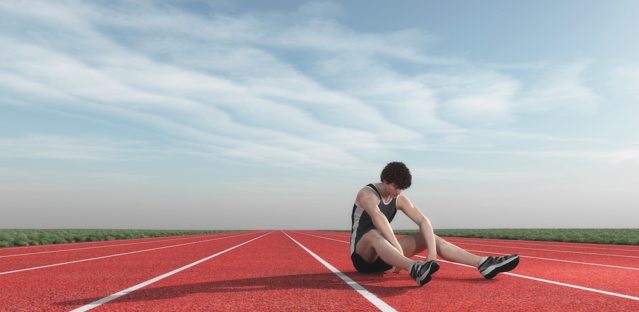Phoenix: 602.866.2231 | Queen Creek: 480.987.1870
7 Ways To Prevent Fall Spor...
7 Ways To Prevent Fall Sports Injuries Whether it’s football, cheerleading, track, soccer, lacrosse, volleyball or any other sport, getting your child involved in sports this fall doesn’t always mean it’s all fun ...
7 Ways To Prevent Fall Sports Injuries
Whether it’s football, cheerleading, track, soccer, lacrosse, volleyball or any other sport, getting your child involved in sports this fall doesn’t always mean it’s all fun and games. According to STOPSportsInjuries.org, approximately 2 million injuries per year are attributed to high school athletes. For children 14 and under, 3.5 million receive treatment for sports injuries each year. So how do you help prevent fall sports injuries for your child?
The Centers for Disease Control and Prevention reports that more than 50% of all sports injuries for children are preventable. As a parent, there are things that you can do to help keep your child out of the doctor’s office and hospital this fall and keep them enjoying their favorite sport.
Here are 7 ways to prevent fall sports injuries for your child:
Strength and Conditioning
Anytime you build strength to complete a certain movement or physical activity, your risk of injury decreases. Building strength and conditioning into your child’s routine will not only decrease their risk of injury but will also lead to improved performance. If your child’s sport requires unique movements, such as twists, turns or jumps that put certain ligaments or joints at risk, focus on these areas as areas to build strength and agility to prevent fall sports injuries.
Warming Up
A proper warm up before practice, a game or match will also help to reduce risk of injury to your child while playing their favorite sport. Warming up increases blood flow, oxygen and nutrients to the muscles; all important things that your child’s body needs to stay injury free during practice or a game. Warming up also improves muscle elasticity and reduces the risk of pulled muscles and strains.
Proper Nutrition and Hydration
When your child’s body has what it needs to perform at its best — proper nutrition and hydration — the risk of fatigue related injuries goes down. Muscles become weak and strength decreases when your child’s nutrition is lacking or they are dehydrated. A well-balanced meal before a practice or game, as well as on an ongoing basis, will help decrease their chance of injury.
Rest
Don’t underestimate the importance of rest. A well-rested athlete is less prone to injury, exhaustion and is better prepared mentally and emotionally for games ahead. This means not only getting proper sleep, but also taking time off regularly from any sports related activities. Resting 1-2 days per week from sports is recommended. Rest breaks during practices and games is also recommended. Resting also helps to prevent overuse injuries in teen athletes.
Find Out the Coach’s Philosophy
Does your child’s coach encourage them to play through pain? If so, this might be a sign that your child’s risk for injury is higher. Does the school have an emergency action plan for on the field? Determining the coach’s philosophy or talking to them about their expectations will help you to know how safe your child will be when it comes to preventing and treating injuries.
Physical Fitness Prior to Starting
While many schools or teams will require a physical exam prior to starting, it never hurts to know where your athlete is starting from when it comes to their health. A check-up at the doctor could reveal underlying medical issues or give you the “all clear.”
While young athletes have the advantage of youth on their side, don’t take health for granted and assume they are physically fit enough for the demands placed on their bodies by the sport. Get a doctor’s approval prior to starting anything new.
Proper Gear and Equipment
Gear, equipment and playing fields that are not in working order can lead to injury for your young athlete. Make sure gear and equipment is clean and in good working condition and the field is free of all hazards.
Following the tips above will help prevent fall sports injuries for your teen athlete. If all else fails and your young athlete still finds himself injured this fall, contact us for an evaluation. In many cases, physical therapy can help your athlete recover fully and recover well after a sports related injury.


 hover background
hover background